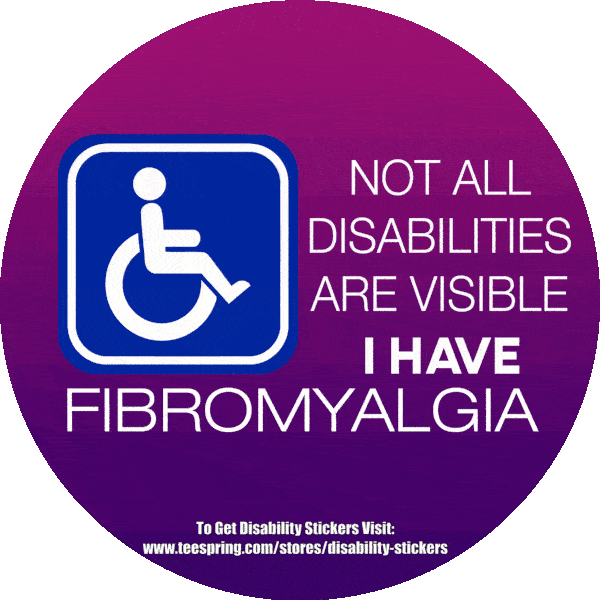Fibromyalgia and Neuropathic Pain
Fibromyalgia and peripheral neuropathy are two diseases that influence the central nervous system, resulting in ache. Aside from muscle pain, fibromyalgia also involves sleep disturbance, mood changes, and memory issues. It is believed to be caused by a physical trauma or psychological stress, but the exact cause is still unknown.
Fibromyalgia is frequently accompanied by other situations, such as worry, irritable bowel syndrome, and despair. Peripheral neuropathy refers to damage caused to the peripheral nerves, resulting in weakness and numbness. Peripheral neuropathy commonly occurs in the feet or hands.
Peripheral neuropathy is a compilation of disorders in which peripheral nerve fibers, which take signals to and from the central nervous system become injured. Diabetes is the most common cause. Typically, nerve fibers in the hands and/or feet are affected. Symptoms include pins and needles, numbness, tingling, and weakness.
People with fibromyalgia might practice the identical symptoms. However, these symptoms tend to come and go in fibromyalgia. In peripheral neuropathy, they are usually constant.

Fibromyalgia and neuropathic pain
A decade ago, the chronic rheumatic disease was most often attributed to muscle and ligament problems. Some declared it a psychogenic disorder. More lately, though, studies have connected fibromyalgia with out of order neurotransmitters, neurochemical imbalances and other neuropathic situations. Today, it’s more widely accepted that fibromyalgia is primarily a neurogenic disease.
Neuropathy is, to break the word down, a disorder (pathy) related to the nerves (neuro). And peripheral neuropathy is a chaos of the nerves that extends all the way through the peripheries of the body). And since the nerves connect the body and the brain and are responsible for physical sensations like pain, a breakdown in this connection can lead to serious problems.
The nerves transmit signals from the skin to the brain, which the brain then interprets and sends back down the nerves. This is why you feel pain in your hand when you touch a hot stove. You’re not actually feeling pain in your hand, the sensation of pain is coming from your brain. But your brain relies on the signals from your hand to know that you are being injured and it signals that your hand is hurting as you pull it away. This system helps us avoid serious injuries.
Fibromyalgia and peripheral neuropathy might overlap same symptoms, but shoot from very dissimilar causes. The cause of fibromyalgia is not understood really, while neuropathy, on the other hand, can be caused by a host of different underlying issues. Both conditions are chronic and could also share similar treatment options. In fact, both can be managed through treatment, so working with your doctor on an appropriate treatment strategy for your fibromyalgia or peripheral neuropathy can help.
It’s an appealing hypothesis, and because small fiber neuropathy is treatable, it could move the way we take care of fibromyalgia. And it is especially interesting because, if true, it might mean that fibromyalgia is actually not a single condition but a wide spectrum of neuropathic conditions all presenting similar symptoms. Luckily, there is a simple test that you can get to determine if you have small fiber neuropathy called a “punch biopsy.”
So if you have fibromyalgia, it may be worth looking into getting this test, because it might mean having access to new treatment options. And this new method of looking at fibromyalgia may even help us guide research to a come through. At the moment, this remains a theory, but it is an interesting one. Unlike fibromyalgia, peripheral neuropathy can be prevented with proper management of the underlying causes (e.g., diabetes). The key distinguishing symptom of fibromyalgia is tender points on the body.
Other signs and symptoms of fibromyalgia comprise constant muscle pain, muscle spasms or tautness, reasonable or ruthless exhaustion, decreased energy, sleeplessness, waking up feeling not fresh, rigidity upon waking or after staying in one position for too long, attentiveness problems, difficulty in recollection and doing easy mental tasks (“fibro fog“), abdominal pain, bloating, vomiting, constipation alternating with diarrhea (irritable bowel syndrome), tension or migraine headaches, as well as jaw and facial tenderness.
With fibromyalgia comes sensitivity to odors, noises, bright lights, medications, certain foods, and cold. The treatments for fibromyalgia include pregabalin (Lyrica), duloxetine (Cymbalta), and milnacipran (Savella) can also be efficient in treating the ache of peripheral neuropathy. The reason is that these medicines affect pain processing in the central nervous system, and while peripheral neuropathy is caused by damage to nerves outside of the brain and spinal cord, that pain still must be processed by the central nervous system.
The cause of fibromyalgia is largely theorized, as it is not well understood. Researchers and doctors believe that fibromyalgia patient experiences amplified pain as a result of abnormal sensory processing in the central nervous system.
Neuropathy can be due to many other circumstances and ailments, and so there is no sole cause. Peripheral neuropathy is associated with nerve damage, which may be caused by alcoholism, autoimmune diseases, diabetes, exposure to poisons, medications, infections, inherited disorders, trauma or pressure on the nerves, tumors, vitamin deficiencies, bone marrow disorders, and other conditions, including diseases that affect the liver, kidneys, and thyroid.
Related:
Fibromyalgia is not all in your head- New Research Confirmed
References:
- Peripheral Neuropathy and Fibromyalgia by Wyatt Redd via Fibromyalgia Treating
- Ask the Experts: Neuropathy/fibromyalgia by Lewis, Richard A. M.D via journals.lww.com

